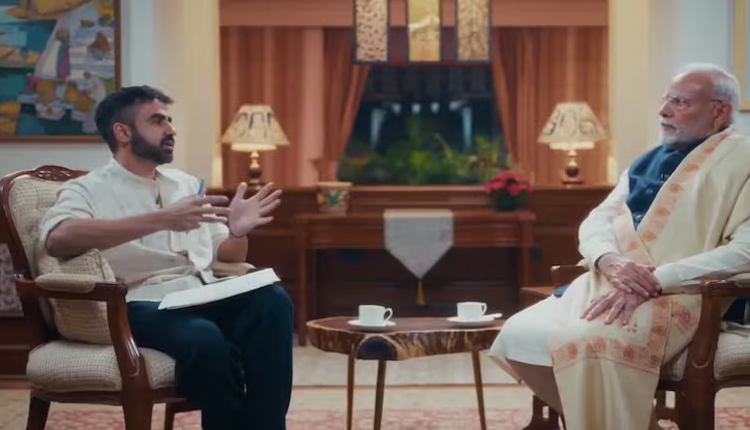New Delhi: On Thursday, Prime Minister Narendra Modi made history through his first podcast presence ever while also laying down the light of a pathbreaking genetic research project, marking a day filled with important announcements.
Meeting Zerodha co-founder Nikhil Kamath in a light-hearted style on the ‘People by WTF’ podcast, Modi greeted his own shortcomings, saying, “I’m human, not God,” and confessed to making mistakes during his tenure.
The Prime Minister pointed out that politics must be a mission, not an ambition; that is why he, as well as other people, should enter public service. While they were examining India’s position on international conflicts, globally Modi was saying, “We are not neutral. We are on the side of peace”.
Reflecting on his two terms in office, Modi shared that his first term was characterised by mutual understanding—it was both his learning about Delhi and others’ trying to figure out his leadership style.
Along the same lines, in another development, Modi released the genome sequencing data of 10,000 Indian citizens, calling it a significant step in the biotechnology field.
This project, which was directed towards completion despite the COVID-19 pandemic, involved over 20 prestigious research institutions that took part, including IITs, CSIR, and DBT-BRIC.
“This national database contains the astonishing genetic landscape of our country and will serve as an invaluable scientific tool,” Modi said at the Genomics Data Conclave. The data, which are in the Indian Biological Data Centre, are predicted to lead to major transformations in the healthcare system and in the genetics research framework in India.
The genome project, which was sanctioned five years ago, focuses on understanding the genetic diseases that are inherited through family lines and on the creation of specific therapies for various communities.
Modi informed that this is one of the steps that show India’s strength in the pharmaceutical field at the global level and its growth, especially in the bio-economy, which has gone up from $10 billion in 2014 to over $150 billion.



Comments are closed.